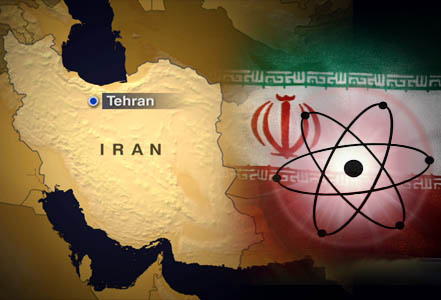Keys to Resolve Nuclear Issue

It is for some time that international movements on the Iranian nuclear issue have begun again; the Russian ‘step-by-step’ project can be considered the first. Consequently, the IAEA deputy director general visited Iran’s nuclear facilities and reported to the Board of Governors. The issues are analyzed in an interview with Farhad Koleini, international issues analyst:
IRD: How do you evaluate the current situation of the Iranian nuclear issue? What about the measures taken to make some changes in this regard?
FK: After the negotiations of Geneva and Istanbul, there is some hope of a return to talks by both sides. Therefore, we have on the one hand the Russian step-by-step project, new cooperation with the IAEA and the launch of the Bushehr nuclear plant and on the other hand, the new report of the IAEA, EU’s (and unofficially US media’s) reactions against the proposal by Mr. Abbasi, Iranian Atomic Energy Organization’s chief. All these factors show that both sides are in search for new trends in the Iranian nuclear issue.
As the Russian project and its content are not publicized and the Iranian officials have given a phase-by-phase answer, it seems that the Iranian viewpoints are meant by Iran to be considered seriously. It cannot be guessed whether the project has new content or proposes a new management method, but what is certain is that Russia considers the new situation in its totality and assumes Iran as a side, not a customer.
IRD: Due to the fact that the deputy IAEA director general visited Iranian nuclear facilities before the publication of the report (and issues like Arak’s heavy water reactor were brought up), the Iranian representative at the IAEA evaluated the report as positive. What caused him to say that?
FK: I am not an official to express such optimistic viewpoints. As an expert, I think that the report should be analyzed realistically: the IAEA stresses its allegations, and Amano’s viewpoint on the Russian step-by-step project is different. Following the previously adopted position, the IAEA did not give a completely fair report. Iran thoroughly cooperated in Nacarts Herman’s visit, but the result is uncertain. Iran adopted the strategy of a visit instead of safeguard, as it knows well how to change the negotiation conditions due to the importance of proliferation after the launch of the Bushehr nuclear plant and to dispel false doubts through interaction. Iran promised to change the threat to opportunity, as the nuclear issue is used as a factor of diplomatic erosion to control the internal developments of Iran and to direct regional competition towards their interests.
IRD: Although Russia tried to create a more positive nuclear atmosphere, Mr. Abbasi’s comments are met by the reaction of EU’s foreign policy official. How is the 5+1 group ready to negotiate?
FK: The EU did not respond to this proposal directly, but stressed again that Iran had to observe the obligations and concentrated on the particular suggestions proposed in Mr. Jalili’s visit. It seems that there is no common point among Russian, Chinese, European and American trends.
Thus, before the EU prepares hasty answers, it should understand the situation thoroughly. It is important whether Aston’s position is considered as that of the EU or that of the 5+1 group. It seems that it is concluded under EU’s positions, not that of the 5+1 group. Acting in haste is not the solution: it is common proverb that “haste makes waste”.
IRD: By considering France’s measures (particularly the adopted position of Sarkozy), how is it possible to approve new declarations against Iran?
FK: President Sarkozy’s adopted position was only to cheer up the diplomatic group, applicable to the internal situation, not to foreign policy. Thus it cannot be supposed that the EU has enforced a new standard for the Iranian nuclear issue. Iran-France relations are in a new phase due to the election of the ministry of foreign affairs’ deputy for Europe and North America as the new ambassador to Paris.
On the other hand, due to the visits and Iran’s cooperation, the new situation should not lead to an issuance of declaration. The follow-ups should be considered, as the pressure through declaration was previously expressed by Hillary Clinton, Cameron and now Sarkozy. Thus it is not a new thing, and the declaration series continues. The Iranian side insists on reaching a balance point, and that caused the opening of the Istanbul negotiations and in the Iranian goodwill in the review of the Russian project. The new test is the increase in the number of visits, and that requires the goodwill of the other side.
IRD: Unquestionably, the report will be included in the agenda of the Security Council…
FK: Naturally, the first audience is the Board of Governors.
IRD: Any other comments?

